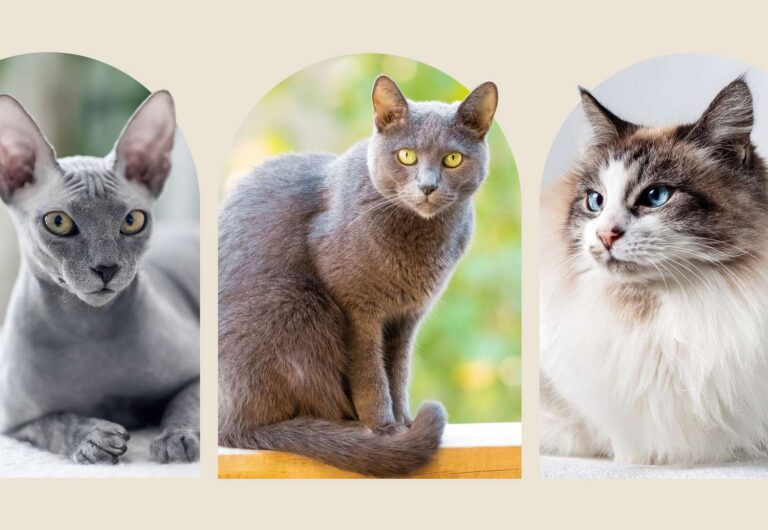This article delves into the fascinating world of feline longevity, shedding light on the average lifespan of cats and the various factors that play a role in determining how long our beloved furry friends live. Cats are known for their mysterious and independent nature, but when it comes to their lifespan, there are certain factors that can significantly influence it.
Genetics, diet, exercise, and veterinary care are key players in the game of cat longevity. Just like humans, cats inherit certain genetic traits from their parents, which can affect their overall health and lifespan. Additionally, providing a balanced and nutritious diet is crucial in ensuring that cats receive the necessary nutrients for a long and healthy life. Regular exercise not only keeps our feline companions physically fit but also helps prevent obesity, a condition that can have detrimental effects on their lifespan. Lastly, routine veterinary care, including vaccinations and regular check-ups, plays a vital role in detecting and addressing any health issues early on, ultimately contributing to a longer lifespan.
Factors Affecting Cat Lifespan
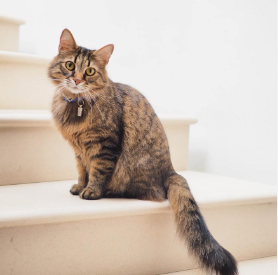
Genetics: Just like humans, cats inherit certain genetic traits from their parents. These genetic factors can influence their overall health and longevity. Some cats are genetically predisposed to certain diseases or conditions that can affect their lifespan.
Diet: Proper nutrition is essential for a cat’s well-being and longevity. A balanced diet that meets their nutritional needs is crucial. Cats require a diet rich in high-quality proteins, essential fatty acids, vitamins, and minerals to thrive.
Exercise: Regular physical activity is vital for maintaining a healthy weight and overall well-being. Cats that engage in regular exercise are less likely to develop obesity-related health issues, which can significantly impact their lifespan.
Veterinary Care: Regular veterinary check-ups and preventive care are essential for ensuring a cat’s health and detecting any potential health issues early on. Vaccinations, parasite control, dental care, and routine examinations all contribute to a cat’s longevity.
By paying attention to these factors and providing our feline companions with the care they need, we can help them live long and happy lives.
Common Health Issues in Cats
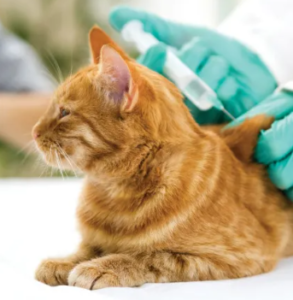
Obesity is a growing concern among cats. Just like in humans, obesity in cats can lead to a range of health problems, including diabetes, joint issues, and heart disease. Cats that are overweight or obese are more likely to develop these conditions, which can significantly shorten their lifespan. It is important for cat owners to monitor their pet’s weight and ensure they are maintaining a healthy body condition.
Dental disease is another common health issue in cats. Poor dental hygiene can lead to gum disease, tooth decay, and oral infections. If left untreated, dental disease can cause pain, difficulty eating, and even organ damage. Regular dental care, including brushing your cat’s teeth and providing dental treats or toys, can help prevent these issues and promote a longer lifespan.
Kidney disease is a serious condition that affects many cats, especially as they age. Chronic kidney disease can lead to kidney failure and a decline in overall health. Early detection and management of kidney disease can help slow its progression and improve a cat’s quality of life. Regular veterinary check-ups and a balanced diet can play a crucial role in maintaining kidney health.
By addressing these common health issues and providing proper care, cat owners can help ensure their feline companions live long and healthy lives. Regular veterinary check-ups, a balanced diet, and good dental hygiene are essential for promoting longevity in cats.
Obesity and Its Effects
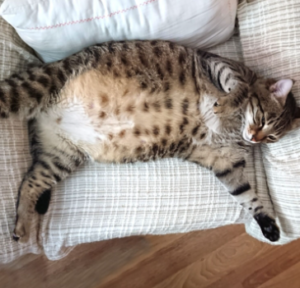
When a cat becomes overweight or obese, it puts extra strain on their joints, bones, and internal organs. This excess weight can lead to various health problems, including diabetes, heart disease, respiratory issues, and arthritis. These conditions can significantly reduce a cat’s quality of life and shorten their lifespan.
Furthermore, obesity in cats can also lead to a decreased immune system function, making them more susceptible to infections and other illnesses. It can also affect their mobility, making it harder for them to engage in physical activity and exercise, further exacerbating the problem.
To combat obesity in cats, it is crucial to provide them with a balanced and nutritious diet. Feeding them high-quality cat food in appropriate portions and avoiding excessive treats can help maintain a healthy weight. Regular exercise, such as interactive play sessions and providing climbing structures, can also help cats burn calories and stay active.
Overall, understanding the dangers of obesity in cats and taking proactive measures to prevent and manage it is essential for their well-being and longevity. By maintaining a healthy weight, cats can live longer, happier lives free from the complications associated with obesity.
Diabetes and Obesity
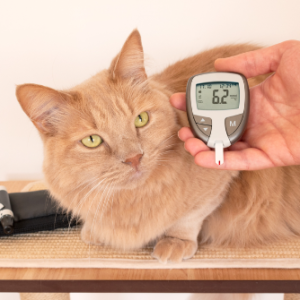
Diabetes in cats is characterized by high blood sugar levels due to either insufficient insulin production or the body’s inability to effectively use insulin. Insulin is a hormone that helps regulate blood sugar levels and allows cells to use glucose for energy. When a cat is obese, their fat cells release substances that can interfere with the normal functioning of insulin, leading to insulin resistance.
Obese cats are more likely to develop type 2 diabetes, which is the most common form of diabetes in cats. This condition can lead to a range of health complications, including kidney disease, high blood pressure, and heart disease. Additionally, diabetes can weaken a cat’s immune system, making them more susceptible to infections and other illnesses.
To prevent diabetes and its detrimental effects on a cat’s lifespan, it is crucial to maintain a healthy weight through proper diet and regular exercise. Obesity can be managed and prevented by feeding cats a balanced diet that is appropriate for their age, size, and activity level. Regular exercise, such as interactive play sessions and access to climbing structures, can help cats burn calories and maintain a healthy body weight.
Regular veterinary check-ups are also essential to monitor a cat’s weight, assess their overall health, and detect any early signs of diabetes. If a cat is diagnosed with diabetes, proper management and treatment, including insulin therapy and dietary changes, can help control the condition and improve their quality of life.
Joint Problems and Obesity
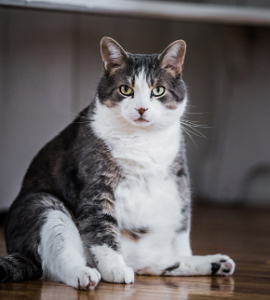
When a cat’s joints are affected by obesity, it can limit their mobility and ability to engage in physical activities. Cats with joint issues may find it difficult to jump, climb, or even walk comfortably. This lack of movement can further contribute to weight gain and muscle loss, creating a vicious cycle.
Joint problems not only affect a cat’s quality of life but can also shorten their overall lifespan. The pain and discomfort associated with joint issues can lead to a sedentary lifestyle, which increases the risk of obesity and related health problems. Additionally, limited mobility can make it challenging for cats to perform essential tasks, such as grooming, leading to poor hygiene and potential infections.
To prevent joint problems and promote a healthy lifespan in cats, it is crucial to manage their weight through a balanced diet and regular exercise. Providing a nutritious diet that meets their specific needs and encouraging physical activity can help maintain a healthy weight and reduce the strain on their joints. Regular veterinary check-ups can also help identify any early signs of joint issues and allow for timely intervention to minimize their impact on a cat’s overall well-being.
Dental Disease and Its Impact
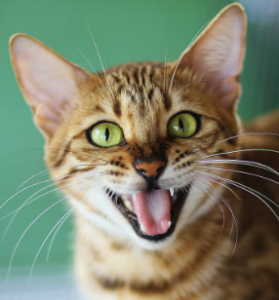
Untreated dental disease can result in various complications for cats. Infections can spread from the mouth to other parts of the body, such as the heart, liver, and kidneys, leading to systemic illnesses. Cats with dental disease may experience pain while eating, which can cause them to lose their appetite and become malnourished. Additionally, damaged teeth and gums can make it difficult for cats to groom themselves properly, leading to poor coat condition and skin problems.
Regular dental care, including professional cleanings and at-home oral hygiene, is crucial in preventing and managing dental disease in cats. Brushing their teeth with cat-friendly toothpaste, providing dental treats or toys, and feeding them a balanced diet that promotes dental health can all contribute to maintaining their oral hygiene. Routine veterinary check-ups should also include a thorough examination of their teeth and gums to identify any dental issues early on.
Promoting Longevity in Cats
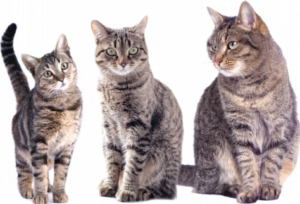
- Proper Nutrition: A balanced diet is crucial for a cat’s overall health and longevity. Ensure they are receiving the right nutrients by feeding them high-quality cat food that meets their specific dietary needs. Consult with a veterinarian to determine the appropriate diet for your cat.
- Regular Exercise: Physical activity is important for maintaining a healthy weight and preventing obesity in cats. Engage your cat in play sessions using toys or incorporate interactive activities that encourage movement. This will not only keep them fit but also provide mental stimulation.
- Routine Veterinary Care: Regular check-ups and vaccinations are vital for detecting any potential health issues early on and preventing them from escalating. Schedule annual visits to the veterinarian to ensure your cat’s well-being and address any concerns promptly.
Additionally, it is essential to provide your cat with a safe and stimulating environment. Create a comfortable space for them to relax and explore, ensuring they have access to fresh water and a clean litter box. Regular grooming and dental care are also important aspects of their overall health.
By following these tips and providing your cat with the care they need, you can contribute to their longevity and ensure a happy and healthy life for your feline companion.
Balanced Diet and Nutrition
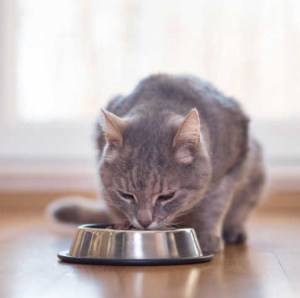
Proteins are essential for cats as they are obligate carnivores, meaning their bodies require animal-based proteins to function optimally. Including high-quality sources of protein in their diet, such as lean meats or commercial cat food formulated with meat, helps support their muscle development and overall health.
Carbohydrates are another important component of a cat’s diet, although they should be provided in moderation. Cats are designed to obtain energy from proteins and fats, but small amounts of carbohydrates can be beneficial for digestion and energy production. Opt for complex carbohydrates like whole grains or vegetables, as they provide more nutrition compared to simple carbohydrates.
Fats are a concentrated source of energy and play a vital role in maintaining a cat’s healthy skin and coat. Including healthy fats in their diet, such as omega-3 fatty acids found in fish oil or flaxseed, can help improve their overall well-being.
Vitamins and minerals are essential for various bodily functions and should be included in a cat’s diet through balanced meals or supplements. These nutrients support their immune system, bone health, and overall vitality.
It’s important to note that cats have specific dietary requirements, and certain foods can be toxic to them. Avoid feeding your cat human foods that are harmful to their health, such as chocolate, onions, garlic, and grapes. Consult with your veterinarian to determine the best diet plan for your cat’s specific needs.
Exercise and Mental Stimulation
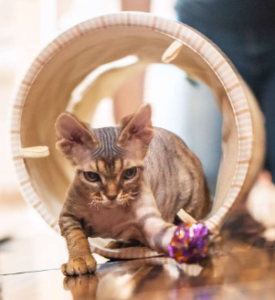
There are various ways to incorporate exercise into a cat’s daily routine. Interactive toys, such as feather wands and laser pointers, can encourage them to chase and pounce, mimicking their natural hunting instincts. Providing climbing structures, scratching posts, and tunnels can also stimulate their physical activity and provide mental stimulation.
In addition to physical exercise, mental stimulation is equally important for a cat’s well-being. Engaging their minds with puzzle toys, treat-dispensing toys, and interactive games can prevent boredom and reduce stress. This mental stimulation helps keep their cognitive abilities sharp and can contribute to a longer and healthier life.
It’s important to note that the level of exercise and mental stimulation needed may vary depending on a cat’s age, breed, and overall health. Consulting with a veterinarian can help determine the appropriate amount and type of exercise for your feline companion.
In conclusion, incorporating regular physical activity and mental stimulation into a cat’s daily routine is vital for their health and longevity. By providing opportunities for exercise and engaging their minds, we can help keep our furry friends happy, prevent obesity, and improve their overall lifespan.
